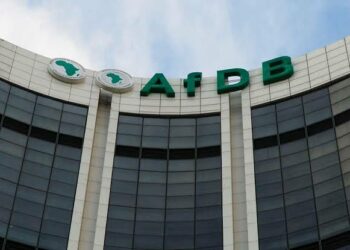Nigeria, as one of Africa’s largest economies, is endowed with immense resources, a vast population, and a strategic location that positions it as a potential economic powerhouse. However, the country’s ease of doing business ranking tells a more sobering story. This ranking, which measures the regulatory environment’s impact on businesses, reflects a complex blend of systemic inefficiencies, bureaucratic bottlenecks, and infrastructural deficits. Understanding this ranking and its implications is critical to crafting strategies for sustainable economic growth and global competitiveness.
The ease of doing business index evaluates factors such as starting a business, obtaining permits, accessing electricity, enforcing contracts, and trading across borders. While Nigeria has made progress in areas like business registration and access to credit, persistent challenges continue to weigh heavily on its overall performance. Complex tax regimes, poor infrastructure, corruption, and inadequate legal protections deter investors and entrepreneurs alike.
A poor ease of doing business ranking has direct and far-reaching implications for Nigeria’s economy. First, it undermines the country’s ability to attract foreign direct investment (FDI). Investors prioritise environments where regulations are clear, processes are transparent, and infrastructure supports efficient operations. Nigeria’s regulatory inefficiencies, coupled with an unpredictable business climate, discourage investment in critical sectors such as manufacturing, technology, and agriculture. Without sufficient FDI, the country struggles to diversify its economy and reduce its dependence on oil revenue.
Beyond deterring foreign investors, a challenging business environment stifles domestic entrepreneurship. Small and medium-sized enterprises (SMEs), which form the backbone of Nigeria’s economy, face significant hurdles in navigating bureaucratic red tape, accessing capital, and competing in an unlevel playing field. This limits their potential to create jobs, drive innovation, and contribute to economic growth.
Additionally, a poor ranking affects Nigeria’s global reputation. International businesses and trade partners use these rankings as indicators of a country’s reliability and efficiency. Nigeria’s relatively low position tarnishes its image, reducing its leverage in negotiating trade agreements and collaborations. The perception of a difficult business environment also impacts the flow of talent, as professionals and entrepreneurs may seek opportunities in more favorable markets.
However, it is important to recognise that Nigeria has made notable efforts to improve its business climate in recent years. Initiatives such as the Presidential Enabling Business Environment Council (PEBEC) and the introduction of online platforms for company registration demonstrate a commitment to reform. The country has also implemented measures to simplify tax payments, digitis-e customs processes, and promote transparency in government dealings. These efforts have yielded some progress, but much work remains to be done to achieve meaningful and lasting impact.
To improve its ease of doing business ranking and unlock its economic potential, Nigeria must adopt a multi-faceted approach. Streamlining bureaucratic processes is essential, with a focus on reducing the time and cost associated with starting and running a business. Investment in critical infrastructure, such as reliable power supply, efficient transportation networks, and digital connectivity, is equally vital. Addressing corruption through stricter enforcement of anti-corruption laws and greater transparency in public institutions will also foster trust and efficiency.
Moreover, Nigeria must strengthen its legal and regulatory frameworks to protect businesses and ensure contract enforcement. Simplifying tax systems and providing incentives for investment in non-oil sectors can stimulate economic diversification. Collaboration with the private sector and civil society will be key in identifying and addressing pain points for businesses.
The implications of Nigeria’s ease of doing business ranking go beyond the numbers—it reflects the lived realities of entrepreneurs, investors, and workers navigating the economic landscape. By addressing the systemic challenges that contribute to this ranking, Nigeria can unlock the vast potential of its economy, foster innovation, and improve the quality of life for its citizens. With deliberate and sustained effort, the country can transform its business environment into one that supports inclusive growth, global competitiveness, and long-term prosperity.





